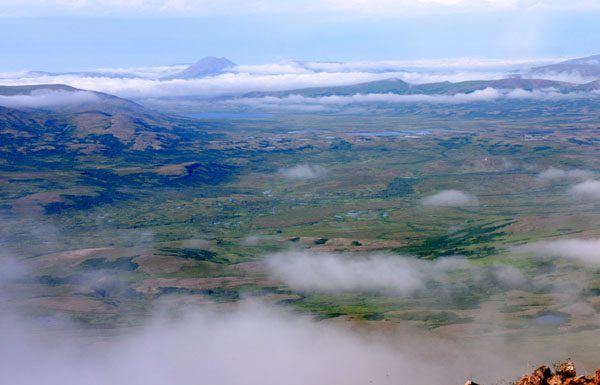
The United States is in a race for strategic mineral supremacy. Many of the essential minerals involved in the design of computer components vital to the nation’s defenses are found, ever increasingly, overseas. And that, during a time of conflict, would leave America in an untenable position.
Just as both President Donald Trump and former Vice President Joe Biden have promised to bring manufacturing jobs back to our shores they should also place America on a course to minimize our reliance on other countries in potentially dangerous parts of the world to provide us with the strategic resources needed to keep the economy flowing and our defenses strong.
The opening of Alaska’s Pebble Mine, which analysts believe may be one of the richest sources of gold and copper remaining untapped anywhere in the world, would significantly reduce the nation’s need to import certain vital minerals. It’s in the final stage of the permitting process and, since the U.S. Army Corps of Engineers recently gave it a positive environmental review, there should be nothing in the way of its beginning to operate save for a few final, minor bureaucratic hurdles.
Unfortunately, that’s not the case. America’s so-called “green” organizations, which oppose the expansion of U.S. development of indigenous fossil fuel resources like oil and natural gas are equally bent on bringing the once robust mining industry to heel. Through their efforts they’ve managed to elevate the possibility of damage to the “native” salmon population to a level that’s getting the attention of policymakers that, incredible as it seems given what’s at stake, block the Trump Administration’s “final Record of Decision” expected sometime in the next few weeks that would give Pebble Mine the green light to begin operations.
The project, just like any that come before the Army Corps of Engineers for review, has been through a well-established environmental review process. It should be given the go-ahead. For some reason, some former senior Trump officials including Nick Ayers, the former chief of staff to Vice President Mike Pence, are reportedly engaged in efforts to stop it.
Pebble Mine would not only be a source of strategic minerals, it would provide jobs at a time when the economy needs them desperately. The U.S. Bureau of Labor Statistics recently reported that, in the last quarter for which the numbers are available, on an annualized basis nearly a third of the nation has become jobless because of the coronavirus lockdown. As the final Environmental Impact Statement compiled by the Army Corps found the concerns regarding the salmon to be baseless and pose no significant threat to its genetic diversity, the continued effort by the greens to push this line of argument is without merit.
Yet the implications of the outcome go well beyond this one project. “Pebble Mine is the poster-child of critical projects delayed by a broken permitting process,” Mike Palicz, a policy analyst with the non-profit group Americans for Tax Reform recently blogged. “The Obama Administration went as far as issuing a preemptive veto to prevent the mine from even receiving a proper environmental review. Last year, the Trump Administration righted this wrong by withdrawing Obama’s preemptive veto, allowing the project to move through the standard review process.”
That process is now nearing completion. The administration has the power to keep things on track and get the mine open. It should ignore additional calls from both environmental activists and those who pretend to be its friends for additional delays and unneeded further evaluation. The final Record of Decision, based on the Army Corps’ review, is expected to be favorable and should be allowed to stand.
Many of those who oppose the Pebble Mine project oppose all mining projects. They want the industry to go the way of the Passenger Pigeon and other extinct species. Their interests and America’s do not coincide.
